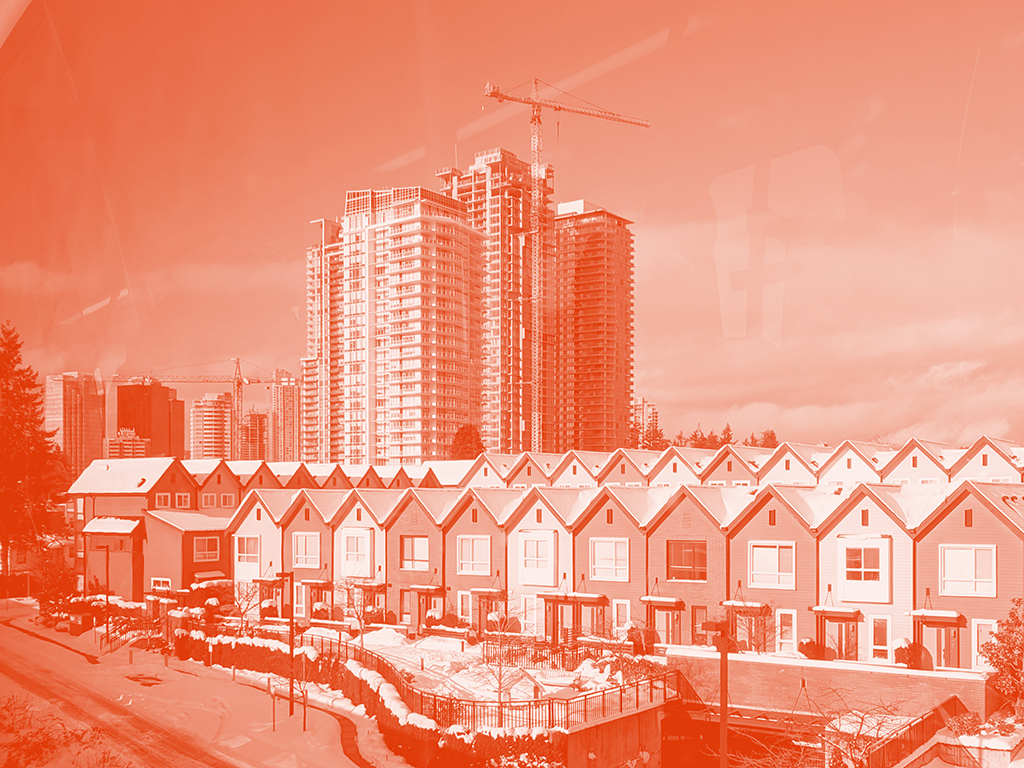How widespread are evictions? How bad are waitlists? And who’s struggling with housing the most?
Statistics Canada’s latest survey goes into detail about what Canadians are experiencing when it comes to their homes.
There’s an “obsession” with home prices as a marker of the housing crisis, says Andy Yan, director of the City Program at Simon Fraser University.
But he says this survey gives us a better picture of what people are experiencing when it comes to their housing situations.
With B.C.’s municipal elections on the horizon, there are lots of findings for candidates to take note of.
Called the Canadian Housing Survey, Statistics Canada usually conducts it every two years. But because of the pandemic, the agency did the latest in 2021 rather than 2020. The results of that survey (which only cover provinces and not territories) were just released in July.
Here are the findings, with a focus on B.C.
BC has the highest share of ‘forced moves’
About 2.1 per cent of households in all provinces were subject to a "forced move" in the five years leading up to 2021. This could be triggered by a landlord, bank or the government, says the survey.
Statistics Canada adds that Indigenous people are twice as likely to be evicted compared to non-Indigenous people.
In B.C., the percentage is the highest of all provinces; 3.6 per cent of households were forced to move, representing 75,400 households.
One reason behind this is that it’s easier for landlords in B.C. to evict tenants. Unlike other provinces, B.C. landlords don’t need to file eviction notices to a governing agency before notifying the tenant. They can give them straight to the tenant, who has the onus of disputing the eviction.
Longer waitlists for social and affordable housing
In B.C., about 26,800 households — 1.3 per cent of all households in the province — in 2021 were waitlisted for social and affordable housing.
But 52 per cent of those households waiting have been doing so for more than two years.
This is worse than 2018, according to the survey that year, during which 46 per cent of households were on waitlists for more than two years.
(The number of waitlisted households appears to have gone up since the survey was conducted. BC Housing told The Tyee earlier this year that it had 31,200 applicants on its waitlist.)
Owners are happier with their homes than renters
The survey asked households how satisfied they are in their homes. To no surprise, owners everywhere are more satisfied than renters.
“Ownership has a pre-filtering process,” said Yan. “You’re not going to buy something you’re unhappy with… unless you’re on the way to something bigger. Renters don’t necessarily have that choice, not in a place like B.C.”
B.C.’s rental vacancy rate is 1.4 per cent, considered unhealthy.
The survey also breaks satisfaction down by housing type.
In B.C., households are satisfied in detached houses most of all, but this doesn’t mean they hate density. The housing type with the most dissatisfied households are lowrises of less than five storeys — this could be because they’re renting old properties rather than because of a hate for lowrises. A huge chunk of the province’s rental stock are lowrises built between the 1960s and ‘80s.
Renters say their ’hood is good
Yan noticed an interesting result from the survey, which also looked at neighbourhood satisfaction.
“People are not happy in rental units, but they’re very happy in renter neighbourhoods,” he said.
He interprets this as meaning that many rental neighbourhoods are rich in amenities like shops and services, but are lacking adequate housing options.
Fewer households in ‘core housing need’
Statistics Canada defines “core housing need” as households with housing that meet one of the following conditions: unaffordable (housing costs exceed 30 per cent of income), unsuitable (not enough room for inhabitants) or inadequate (poor condition) housing.
In B.C., the percentage of households in core housing need fell from 14.8 in 2018 to 12.5 in 2021.
Yan says this positive outlook could be a reflection of households in dire straits not filling out the survey or the fact that temporary pandemic policies introduced by the provincial NDP government helped. These policies halted evictions, rent increases and gave rent supplements.
Despite the improvement since 2018, renters have more housing problems than homeowners.
In 2021, 27 per cent of renter households were in core housing need, over three times more than owners.
Groups struggling with ‘core housing’
The 2021 survey provides a demographic breakdown across Canadian provinces of households in core housing need.
Compared to the percentage of the total population in core housing need (7.2), there are higher percentages of racialized people (9.2) and First Nations people living off reserve, Métis and Inuit (13.1). Percentages are more dire within some groups.
Among people identifying as Korean, 22 per cent are in core housing need. This is extra troubling when compared with 2018 because they are the only group that did not show improvement. People that identify as Arab come next, with 16.2 per cent in core housing need.
Aside from racialized groups, the survey results also highlighted the plight of seniors.
Twenty-one per cent of seniors living alone are in core housing need. But if they live with others, this drops to 3.3 per cent.
Back to the toolbox
With a growing population of renters and increasing rental precariousness, Yan says there is a lot in the municipal toolkit for candidates to campaign on this election season.
Some solutions are: using zoning to mandate rentals; cracking down on short-term rentals like Airbnb; creating policy around family-sized rentals; allowing displaced renters to return to new buildings at below-market rates; and introducing penalties for landlords with vacant units. Cities in Metro Vancouver have already begun implementing a few of these.
Of course, Yan, the data cruncher, wants more housing data to be collected, particularly around rented condos and suites in houses.
The problem, though, is the pushback from those profiting from the current status quo of commodified housing.
“There is a level of choice in our political economy where the other side says: please don’t do any of this, let us keep doing our business,” says Yan.
🔥🔥🏠
Hot, Hot Housing is a reported column on the housing crisis in Vancouver and beyond, published in The Tyee every Friday.
With the municipal elections on the horizon, we will be wrapping it up at the end of the month. Expect our coverage to challenge candidates about how they’ll handle the housing file. ![]()
Read more: Local Economy, Housing

















Tyee Commenting Guidelines
Comments that violate guidelines risk being deleted, and violations may result in a temporary or permanent user ban. Maintain the spirit of good conversation to stay in the discussion.
*Please note The Tyee is not a forum for spreading misinformation about COVID-19, denying its existence or minimizing its risk to public health.
Do:
Do not: